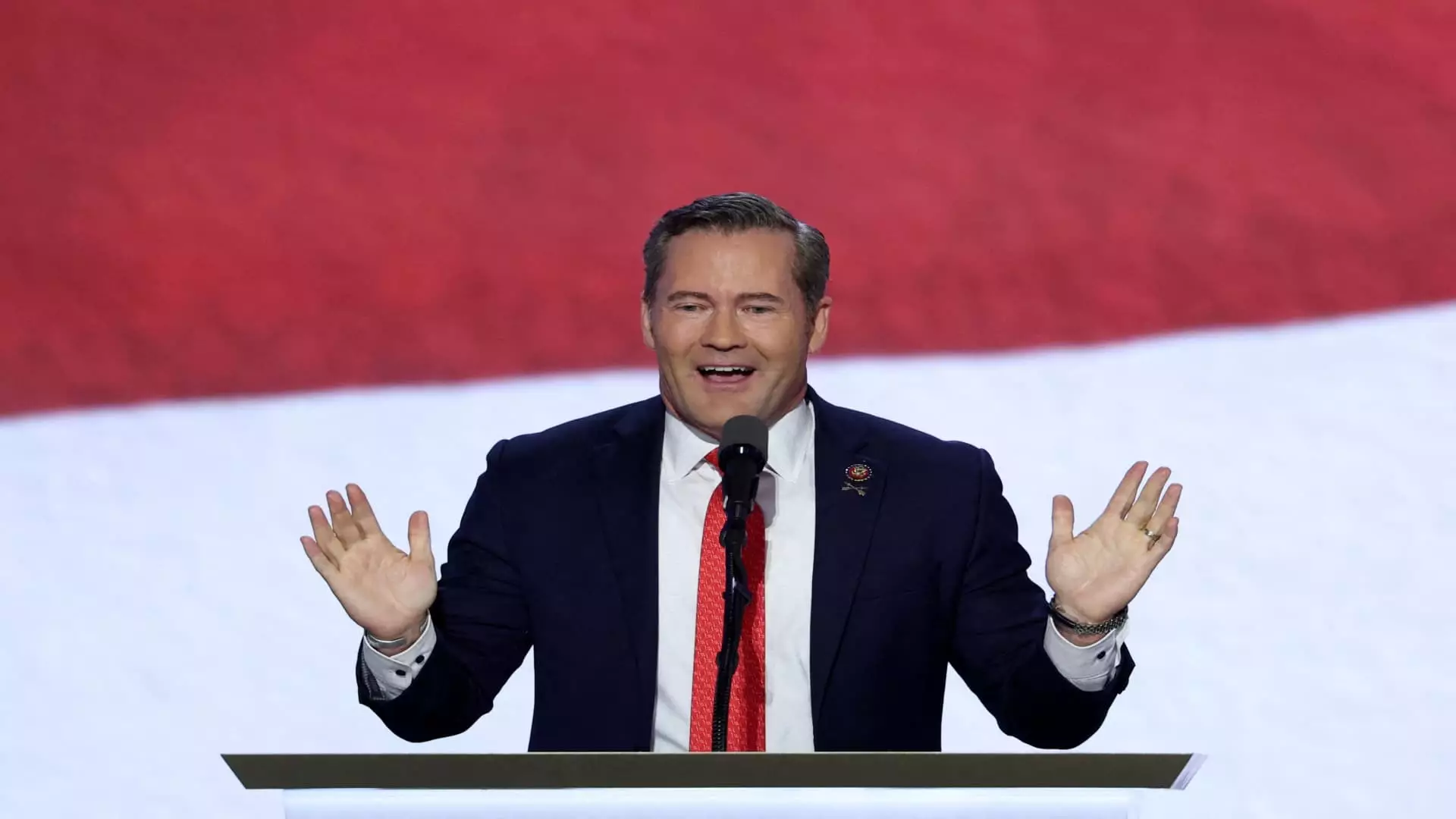In a decisive move for his administration, President-Elect Donald Trump has appointed Rep. Mike Waltz from Florida as his national security adviser, a choice that underscores the administration’s commitment to a robust national defense strategy. Waltz, a veteran with a background in the Special Forces, brings a wealth of military experience to the role, having served in various conflict zones including Afghanistan, the Middle East, and Africa. His insight into military operations and international relations is a critical asset, particularly in today’s tumultuous geopolitical landscape.
Since 2019, Waltz has held a seat in the U.S. House of Representatives, where he has actively participated in committees focused on Armed Services, Foreign Affairs, and Intelligence. His legislative experience equips him with a dual lens to view national security not only through military might but also through the intricacies of diplomatic engagements. His perspective is undoubtedly influenced by his military service, yet it is also shaped by his experiences navigating the legislative process. This combination is crucial, as it provides a balance between military necessity and diplomatic subtleties.
Waltz’s staunchly hawkish stance on China reflects a growing concern among many policymakers about the rising geopolitical tensions in the Asia-Pacific region. As a member of the House’s China Task Force, he has voiced his belief that the U.S. is not adequately equipped to handle potential conflicts with China. This concern has become a focal point in American foreign policy debates, as many argue that a stronger, more proactive stance is essential to counterbalance China’s increasing influence. His insights may help shape a more aggressive and strategic posture in U.S. relations with China moving forward.
Interestingly, Waltz has also expressed skepticism regarding U.S. aid to Ukraine amidst its ongoing conflict with Russia. His assertion that the U.S. possesses “leverage” to steer Russian President Vladimir Putin toward negotiation highlights his inclination toward conflict resolution through diplomacy rather than necessarily committing to extensive military assistance. This approach seems to diverge from prevailing sentiments within Congress and could lead to notable discussions about the U.S.’s role in global conflicts.
The role of national security adviser is vital as it necessitates astute judgment without the burden of Senate confirmation, allowing rapid policy implementation. Waltz’s appointment follows the selection of Rep. Elise Stefanik as the U.S. ambassador to the United Nations, indicating Trump’s trend of appointing legislative allies. As the national security environment continues to evolve, Waltz’s role will be crucial in shaping policy that not only addresses immediate threats but also anticipates future challenges in an increasingly complex world.
Mike Waltz’s appointment as national security adviser reflects a blend of military expertise and legislative insight that could significantly impact U.S. foreign policy. His perspectives on military readiness, diplomatic negotiations, and international conflicts will likely define his tenure in this pivotal role.


Leave a Reply